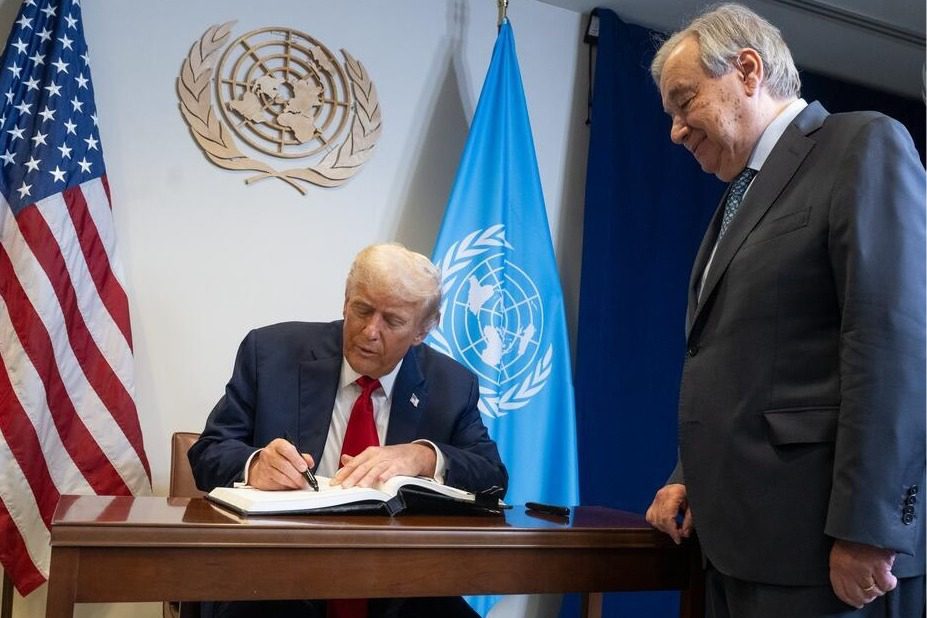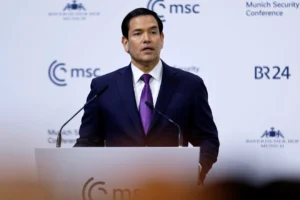Key Impact Points
- Rising Investment in Climate and Development: Private sector interest in SDG-related projects is increasing, but investment volumes remain insufficient to meet global goals.
- Importance of Global Cooperation: Cross-sector collaboration between governments, multilateral organizations, and the private sector is critical to scale and accelerate investments.
- Targeted Solutions Needed: Focus on local currency solutions, risk assessments, and de-risking of essential projects can unlock more private capital for sustainable development.
Overview
Despite increasing capital flows towards climate and development, global investment volumes are not scaling fast enough to meet the urgent challenges posed by climate change and sustainable development goals (SDGs). The world is seeing encouraging signs of growth in investments for green infrastructure, sustainable debt markets, and innovative financial products, but the volume remains far short of what’s needed.
According to Boston Consulting Group, unlocking the full potential of private sector investment will require breaking down silos between governments, the private sector, multilateral organizations, and civil society. Collaborative efforts to adapt financial structures and instruments can bring private capital to the forefront of achieving the SDGs at the scale and speed required.
Private Investment for Global Objectives is Gaining Momentum
Investment in sustainable development is on the rise, with an increasing number of investors focusing on themes like climate, green minerals, and sustainable infrastructure. The sustainable debt market, for example, has rebounded from a post-2021 dip, with total volume up 15% in Q1 2024 to $272.7 billion, according to the Climate Bonds Initiative.
Change the World - Subscribe Now
Private investment in infrastructure also hit $424 billion in 2022, a 41% increase from 2017, as investors see infrastructure as a meaningful way to align financial returns with social and environmental benefits.
New financial products, such as disaster risk instruments and outcomes-based payment systems, are being developed to improve the bankability of projects, increasing the role of private investment in SDG-related sectors.
The Role of Global Cooperation
Despite these positive developments, the investment gap for SDG-related projects remains vast, with estimates suggesting that nearly $4 trillion in annual investments are needed. Closing this gap will require global cooperation across sectors, including public policymakers, regulators, private investors, and project sponsors.
Boston Consulting Group emphasizes the importance of collaborative action to strengthen the structure and operation of financial markets. Enhancing standards for sustainable loans, bonds, and other instruments will help boost investor confidence. Moreover, increasing the availability and quality of market data will drive better decision-making for investors.
Global collaboration is also crucial in helping companies, especially in emerging economies, to build the skills and capabilities needed to seize growing opportunities in sustainable finance.
Targeted Solutions to Unlock Financing
Specific solutions targeting key areas can further unlock private financing for the SDGs:
- Local Currency Solutions: Many projects, particularly in the Global South, rely on hard currency, exposing borrowers to exchange rate risks. Scaling solutions for local currency lending will mobilize more private sector financing.
- Country Risk: Improved methodologies and better data sharing can enhance country-level risk assessments, making investment in emerging markets more attractive to private investors.
- Project Risk: Essential SDG projects, such as climate adaptation measures, often face financing challenges due to perceived risks. Blended finance partnerships can help de-risk these projects and increase funding. Public-private collaboration can also create platforms that offer country-specific information on regulatory frameworks to facilitate investment.
- Debt Sustainability: While progress has been made on debt sustainability for sovereign borrowers, more needs to be done for private and commercial borrowing. Expanding frameworks like the G20-led Debt Service Suspension Initiative to include private debtors could unlock additional capital flows.
Related Article: Climate Action Must Top the Agenda at UNGA: A Call for Global Cooperation Amid Multiple Crises
Conclusion
Achieving the Sustainable Development Goals is not possible without significant participation from the private sector. There is a growing appetite for investment opportunities that deliver both financial returns and social impact. However, smart, targeted, and collaborative action between public, private, and social sectors is critical to turning this opportunity into reality.
The world needs to move faster and smarter, ensuring that private capital serves as a powerful force multiplier for tackling the climate crisis and driving sustainable development.

 Follow SDG News on LinkedIn
Follow SDG News on LinkedIn











